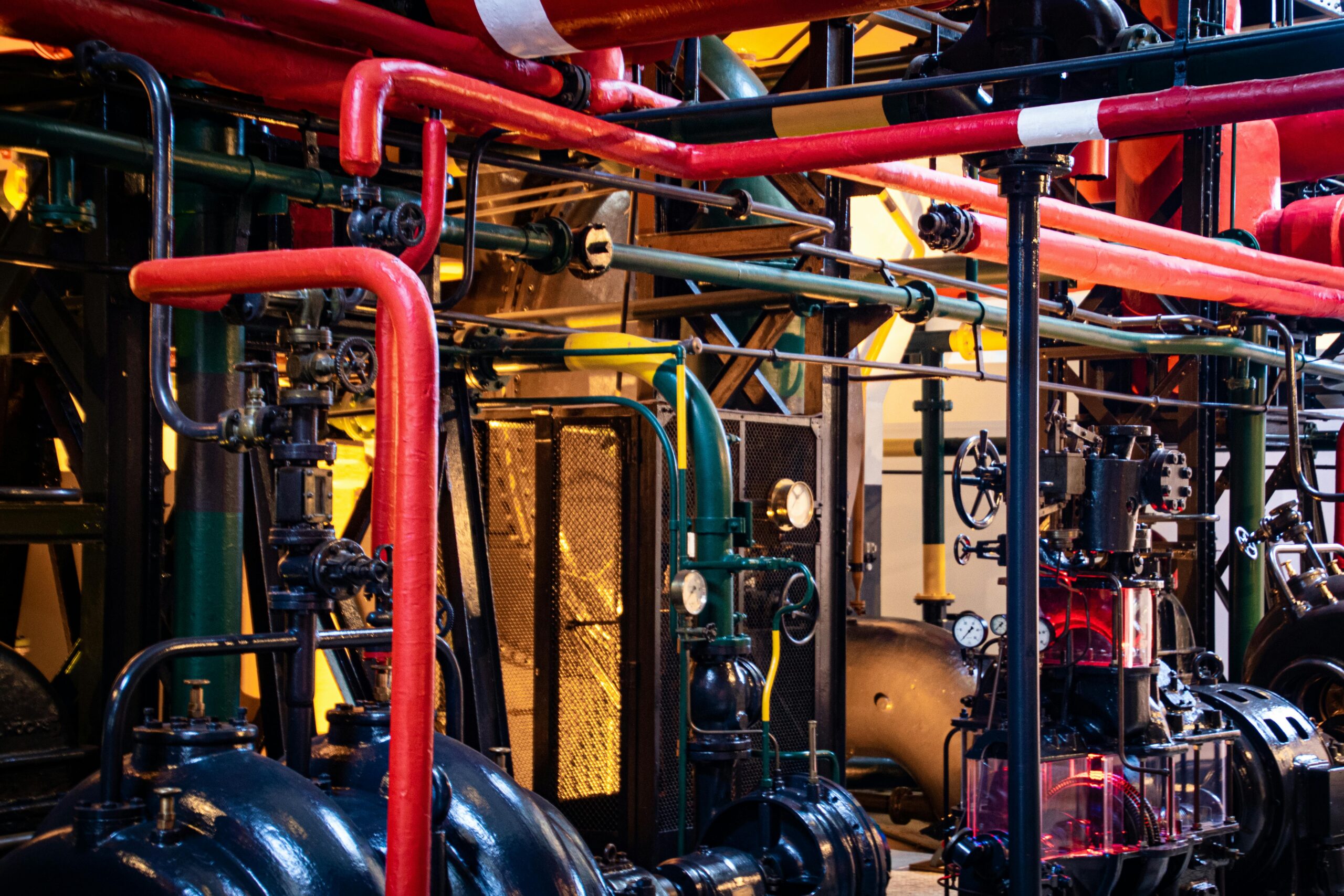Vermont Gas: Discover How It Powers Homes With Clean Energy and vermont gas
Have you ever wondered how Vermont Gas powers homes with clean energy while supporting sustainable living? In today’s world, where eco-friendly solutions are more important than ever, Vermont Gas stands out as a leading provider of clean natural gas that helps homeowners reduce their carbon footprint. This article dives deep into the innovative ways Vermont Gas delivers reliable, affordable, and environmentally responsible energy to thousands of households across the Green Mountain State. Ready to explore how Vermont Gas clean energy solutions are transforming the way we heat our homes? Keep reading to uncover the secrets behind this green energy revolution!
Vermont Gas isn’t just your ordinary utility company; it’s a pioneer in promoting sustainable energy in Vermont. With their commitment to cleaner fuel alternatives, they provide a dependable source of natural gas for homes that burns cleaner than traditional heating oils or electricity generated from fossil fuels. But what really makes Vermont Gas unique is their continuous investment in infrastructure and technology, ensuring that customers get the best mix of cost-efficiency and environmental benefits. Curious about how they balance affordability with sustainability? You’re about to find out.
Moreover, as climate change concerns grow, more Vermonters are turning to eco-friendly home heating options — and Vermont Gas is right at the forefront. By embracing innovative practices like renewable natural gas and supporting community-based energy initiatives, Vermont Gas is helping families enjoy warmth and comfort without compromising the planet’s future. Wondering how you can switch to greener energy sources without blowing your budget? This article will guide you through everything you need to know about Vermont Gas and its role in powering homes with clean energy in Vermont.
How Vermont Gas Delivers Clean Energy Solutions to Power Homes Efficiently
How Vermont Gas Delivers Clean Energy Solutions to Power Homes Efficiently
In Vermont, where the environment and sustainability are highly valued, energy solutions that prioritize cleanliness and efficiency are becoming more important than ever before. Vermont Gas, a prominent energy provider in the region, has been playing a crucial role in powering homes with clean energy alternatives. Their efforts to reduce greenhouse gas emissions and promote renewable energy make them a key player in Vermont’s transition toward a greener future. But how exactly Vermont Gas delivers clean energy solutions? Let’s explore their approach, history, and what makes their service unique in the New England energy landscape.
Vermont Gas: A Brief Overview and Its Mission
Founded over a century ago, Vermont Gas Systems, Inc. has grown from a small local utility to one of the largest natural gas distributors in the state. The company primarily provides natural gas to residential, commercial, and industrial customers across the Vermont region. However, unlike traditional fossil fuel companies, Vermont Gas has showed a commitment to cleaner energy sources and sustainable practices.
Their mission revolves around delivering safe, affordable, and environmentally responsible energy. They have invest in infrastructure upgrades and support initiatives that reduce carbon footprints. Vermont Gas often collaborates with state agencies and environmental organizations to ensure their energy solutions aligns with Vermont’s strict environmental goals.
Clean Energy Solutions Offered by Vermont Gas
Vermont Gas does not only deliver natural gas but also actively integrates cleaner energy options. Some main clean energy solutions include:
- Renewable Natural Gas (RNG): Vermont Gas incorporates RNG, which is produced from organic waste like manure, food scraps, and wastewater. RNG is a carbon-neutral alternative to conventional natural gas, and helps reduce methane emissions from landfills and farms.
- Energy Efficiency Programs: They offer programs that encourages customers to improve their energy efficiency. This includes rebates for upgrading to high-efficiency appliances and home weatherization efforts.
- Carbon Offset Initiatives: Vermont Gas invests in carbon offset projects that balance out emissions from natural gas consumption.
- Infrastructure Modernization: Replacing old pipelines with modern, leak-resistant materials reduces methane leaks, a potent greenhouse gas.
How Vermont Gas Powers Homes With Clean Energy in Practical Terms
When a homeowner in Vermont signs up for Vermont Gas service, they receive reliable energy that is increasingly greener than years before. The process typically look like this:
- Connection and Installation: Vermont Gas technicians safely connect homes to the natural gas grid, making sure infrastructure supports efficient delivery.
- Use of Renewable Natural Gas: A portion of the gas supplied is RNG blended with conventional natural gas, lowering the carbon content of the fuel.
- Home Heating and Appliances: The delivered gas powers heating systems, stoves, water heaters, and sometimes even generators, all while being more environmentally friendly than oil or propane alternatives.
- Energy Efficiency Support: Customers are guided to reduce their energy needs through efficiency upgrades, which lowers overall consumption and bills.
Comparing Vermont Gas to Other Energy Providers in New England
New England has a mix of energy providers offering electricity, oil, propane, and natural gas. Vermont Gas stands out in several ways:
| Feature | Vermont Gas | Other Natural Gas Providers | Oil & Propane Providers |
|---|---|---|---|
| Renewable Energy Integration | Yes, with RNG programs | Limited or emerging | Rare or none |
| Energy Efficiency Incentives | Extensive rebates and programs | Varies, often less comprehensive | Limited |
| Greenhouse Gas Emissions | Lower due to RNG and upgrades | Higher, depending on RNG usage | Highest emissions |
| Safety and Infrastructure | Modern pipeline upgrades | Some older infrastructure | No pipelines, delivery-based |
| Customer Service Focus | Community-oriented in Vermont | Varies widely | Varies widely |
Historical Context: Growth and Environmental Commitment
Vermont Gas began as a modest pipeline service in early 1900s, initially serving a few towns. Over decades, the company grew with Vermont’s expanding population and demand for cleaner heating options. In the 1990s and early 2000s, as climate change awareness increased, Vermont Gas began pioneering efforts to reduce environmental impact.
One significant milestone was the company’s early adoption of RNG in the 2010s, making them a leader in renewable gas in the region. They also partnered with dairy farms and waste treatment facilities to capture methane that would otherwise escape into the atmosphere.
Practical Examples of Vermont Gas’ Impact
- Farm Methane Capture: Vermont Gas collaborates with local farms to capture methane from manure lagoons, converting this potent greenhouse gas into usable RNG. This not only powers homes but also supports Vermont’s agricultural community.
- Residential Energy Rebates: A homeowner in Burlington upgraded their old furnace to a high-efficiency model with help from Vermont Gas rebates, reducing gas consumption by nearly 20% and lowering monthly
7 Surprising Benefits of Using Vermont Gas for Sustainable Home Heating
Vermont, known for its picturesque landscapes and commitment to environmental stewardship, has been making waves in sustainable home heating solutions. One of the often overlooked but powerful contributors to this green movement is Vermont Gas. Many homeowners might not realize how this local energy provider is transforming the way we heat our homes with clean energy. In this article, we dive into 7 surprising benefits of using Vermont Gas for sustainable home heating, revealing how it helps power Vermont homes while supporting a cleaner environment.
Vermont Gas: A Brief Overview
Before getting into the benefits, it’s important to understand what Vermont Gas is and how it operates. Vermont Gas is a natural gas utility company serving thousands of customers across the state. Unlike traditional fossil fuels, the company is increasingly integrating renewable natural gas and other clean energy sources into its supply. This shift helps reduce greenhouse gas emissions and supports Vermont’s ambitious climate goals.
The company’s infrastructure and service model also plays a role in making home heating more efficient and sustainable. Vermont Gas has been around for decades, but its recent innovation in clean energy integration makes it a key player in the state’s energy future.
1. Cleaner Energy Compared to Oil and Propane
Most Vermont homes traditionally used oil or propane for heating, which are known to emit significant amounts of carbon dioxide and other pollutants. Vermont Gas, by contrast, offers a cleaner-burning alternative. The natural gas supplied produces less carbon emissions per unit of energy than oil or propane.
In numbers, natural gas combustion emits approximately 117 pounds of CO2 per million British thermal units (BTUs), while heating oil emits around 161 pounds per million BTUs. This means switching to Vermont Gas can reduce your home’s carbon footprint significantly.
2. Renewable Natural Gas Integration
One of the surprising benefits is Vermont Gas’s commitment to renewable natural gas (RNG). RNG is produced from organic waste, such as food scraps or agricultural byproducts, and is chemically identical to traditional natural gas.
By blending RNG into its supply, Vermont Gas helps divert waste from landfills and reduces methane emissions. Methane is a potent greenhouse gas, so capturing it and turning into usable energy is a win-win. This practice increases the sustainability of home heating beyond just reducing fossil fuel use.
3. Consistent and Reliable Heating Energy
Unlike electric heat pumps, which can struggle during extremely cold Vermont winters, Vermont Gas provides a consistent heating source that doesn’t fluctuate with outside temperatures. This reliability means homeowners can stay warm during the coldest days without worrying about system failures or energy shortages.
Natural gas systems also heat homes quickly and maintain steady temperature, which adds to comfort and energy efficiency.
4. Cost-Effective Heating Solution Over Time
Many homeowners worry about the cost of switching to sustainable energy. While initial installation of Vermont Gas lines and systems might require investment, the operational cost often ends up lower than oil or electric heating.
Here’s a quick comparison of average annual heating costs:
- Heating Oil: $2,100
- Propane: $2,500
- Electric Heat: $1,800
- Vermont Gas (Natural Gas): $1,200
These numbers vary depending on home size and insulation but generally show that Vermont Gas offers a more affordable option over time.
5. Supports Local Economy and Jobs
Choosing Vermont Gas means supporting a local company that employs hundreds of Vermonters. The company invests in infrastructure, maintenance, and expansion projects throughout the state, providing jobs and economic benefits.
Supporting local energy providers like Vermont Gas helps Vermont’s economy grow and keeps energy dollars circulating within the community rather than going to out-of-state suppliers.
6. Reduced Maintenance and Longer Equipment Lifespan
Natural gas heating systems supplied by Vermont Gas typically require less maintenance than oil or propane systems. They have fewer parts that wear out quickly and don’t produce as much residue or soot, which can cause system damage over time.
Homeowners report that gas furnaces and boilers last longer and operate more efficiently, meaning fewer repair costs and less hassle over the years.
7. Easy Integration with Modern Home Technologies
Vermont Gas systems can be easily integrated with modern smart home technologies and energy-efficient appliances. For example, smart thermostats can optimize natural gas heating schedules, saving energy and reducing bills.
Also, combination systems that use natural gas for heating and electricity for other functions can balance sustainability and convenience, making homes more adaptable to future energy innovations.
Summary Table: Comparing Home Heating Options in Vermont
| Heating Type | Average Annual Cost | Carbon Emissions (lbs CO2/million BTUs) | Maintenance Needs | Reliability in Cold Weather |
|---|---|---|---|---|
| Heating Oil | $2,100 | 161 | High | High |
| Propane | $2,500 | 139 | Medium | High |
| Electric Heat | $1,800 |
Exploring Vermont Gas: A Reliable Source of Clean Energy for Residential Use
Exploring Vermont Gas: A Reliable Source of Clean Energy for Residential Use
Living in Vermont, many residents are becoming more conscious about how they powers their homes. Vermont Gas, a prominent utility company in the region, has been playing a significant role providing clean energy to households across the state. While some people still are unsure about what Vermont Gas really offers and how it benefits the environment, this article dives into the details, exploring why it is considered a reliable source of clean energy for residential use.
What Is Vermont Gas and How It Started
Vermont Gas Systems, Inc., commonly referred to as Vermont Gas, is a company that delivers natural gas services to customers in Vermont and parts of New England. Founded in the 19th century, it originally started as a coal gas provider before transitioning into natural gas distribution. Over the years, the company has evolved with a mission to promote cleaner energy alternatives for heating and cooking needs in homes.
Natural gas is a fossil fuel, but it burns cleaner than oil or coal, producing less carbon dioxide and pollutants. Vermont Gas has invested in infrastructure and technology to improve pipeline safety and efficiency while expanding its reach to more residential areas. Although natural gas is not a renewable energy source, many experts argue it is a better option compared to other traditional fuels for home energy.
How Vermont Gas Powers Homes With Clean Energy
Using Vermont Gas means that homes get a steady supply of natural gas for various purposes such as heating, water heating, cooking, and sometimes even powering generators. The clean-burning nature of natural gas ensures it emits fewer greenhouse gases than other fossil fuels. Here is how it works for residential users:
- Heating Systems: Many Vermont homes use natural gas furnaces or boilers which provide warmth during harsh winters.
- Water Heating: Gas-powered water heaters are common, heating water efficiently and quickly.
- Cooking Appliances: Gas stoves and ovens offer precise temperature control preferred by many chefs.
- Backup Power: Some homes have natural gas generators to keep electricity flowing during outages.
The infrastructure includes underground pipelines that deliver gas safely from suppliers to homes. Vermont Gas ensures regular maintenance and monitoring to avoid leaks or disruptions. The company also promotes energy efficiency programs helping customers reduce consumption and lower bills.
Environmental Impact and Clean Energy Initiatives
People often question if natural gas can be considered clean energy. While it is a fossil fuel, natural gas is less carbon-intensive than coal or oil. Burning it produces about 50% less carbon dioxide compared to coal and 30% less than oil. Vermont Gas supports this transition to cleaner heating by expanding natural gas access and encouraging customers to switch from oil heating systems.
Additionally, Vermont Gas has launched initiatives to reduce methane emissions, a potent greenhouse gas often associated with natural gas production and distribution. They invest in technologies like advanced leak detection and pipeline upgrades to minimize environmental risks.
Here is a simple comparison of emissions per energy unit burned:
| Energy Source | CO2 Emissions (lbs/MMBtu) |
|---|---|
| Coal | 210.0 |
| Oil | 170.0 |
| Natural Gas (Vermont Gas) | 117.0 |
This table shows why switching to Vermont Gas could lower your home’s carbon footprint significantly.
Practical Advantages of Using Vermont Gas at Home
Many homeowners in Vermont find switching to natural gas beneficial beyond environmental reasons. Some advantages include:
- Cost Savings: Natural gas prices tend to be more stable and often lower than electricity or oil.
- Reliability: The gas supply is consistent even in extreme weather, unlike electricity which may blackout.
- Comfort: Gas heating provides rapid warm-up times and better temperature control.
- Convenience: Automatic delivery through pipelines means no need to store fuel tanks or schedule deliveries.
- Compatibility: Many modern appliances are designed for natural gas use, making upgrades easier.
Challenges and Considerations for Vermont Gas Customers
Of course, using Vermont Gas is not without some challenges. First, gas service availability is limited to certain areas where pipelines exist, so rural locations may not have access yet. Installation costs for converting from oil or electric heating to gas can be high initially, although often offset by long-term savings.
Safety is another concern; natural gas leaks can be dangerous if not detected. Vermont Gas provides safety tips and encourages installing carbon monoxide detectors at home. Customers must also be aware of their gas usage to avoid unexpected bills, especially during cold months.
How Vermont Gas Compares to Other Clean Energy Options
In Vermont, there are several choices for clean or renewable energy sources for homes:
- Electric Heat Pumps: Use electricity but are very energy efficient and can be powered by renewable energy.
- Wood Pellets and Biomass: Renewable but may produce particulates affecting air quality.
- Solar Panels: Renewable and clean but with high initial investment and depends on weather.
- Vermont Gas: Not renewable but cleaner
Why Vermont Gas Is Leading the Way in Eco-Friendly Home Energy in 2024
In 2024, Vermont is becoming more and more recognized for its strong commitment to clean energy, and Vermont Gas is playing a huge role in leading this green revolution. Many people dont realize just how much Vermont Gas has transformed the way homes in the Green Mountain State get powered, focusing on eco-friendly solutions that reduce carbon footprints. This push for sustainability is not just a trend but part of a larger movement toward cleaner, safer energy sources in New England.
Vermont Gas: A Brief Overview and Its Eco-Friendly Mission
Vermont Gas Systems, Inc., serving thousands of customers across Vermont, has been around since the mid-19th century but its mission has evolved significantly. Nowadays, the company isnt simply delivering natural gas, they are heavily investing in reducing emissions and promoting renewable energy integration. Vermont Gas has set ambitious goals to decarbonize home energy, which includes modernizing infrastructure and supporting customers to switch to more efficient, cleaner appliances.
Historically, Vermont was one of the first states to push for renewable energy mandates, and Vermont Gas has adapted by developing strategies that align with these policies. For example, the company supports programs that encourage residents to replace oil heating systems with natural gas or even hybrid solutions that combine gas with solar or electric heat pumps.
How Vermont Gas Powers Homes with Clean Energy
Despite natural gas being a fossil fuel, Vermont Gas is making strides in reducing environmental impact by:
- Offering renewable natural gas (RNG): This is gas derived from organic waste like farm manure or food scraps, which drastically cuts methane emissions.
- Upgrading pipeline infrastructure: By reducing leaks and improving efficiency, the company minimizes gas loss, which is a major contributor to greenhouse gases.
- Promoting energy-efficient appliances: Customers get incentives to switch to high-efficiency furnaces, water heaters, and cooking appliances that use less energy.
- Supporting hybrid heating systems: These combine gas with electric heat pumps, reducing overall fossil fuel consumption.
In addition, Vermont Gas has collaborated with local farmers and waste management facilities to produce RNG, turning waste products into usable energy. This circular approach not only lowers carbon emissions but supports the local economy.
Comparing Vermont Gas to Other Energy Providers in New England
In the New England region, energy providers are under pressure to cut emissions and offer sustainable alternatives. Vermont Gas stands out in several ways:
| Feature | Vermont Gas | Other New England Providers |
|---|---|---|
| Renewable Natural Gas Programs | Actively expanding | Limited or in pilot stages |
| Infrastructure Modernization | Ongoing with focus on leaks | Variable, some older infrastructure |
| Customer Incentives for Efficiency | Generous rebates and support | Limited or less comprehensive |
| Integration with Local Agriculture | Strong collaboration | Minimal involvement |
| Commitment to Carbon Neutrality | Targeting 2030 | Many targeting 2050 or later |
This comparison shows Vermont Gas is ahead in implementing practical, eco-friendly solutions that directly impact home energy use.
Practical Examples of Vermont Gas’s Eco-Friendly Initiatives
Many Vermont homeowners have already benefited from Vermont Gas’s programs in 2024. Here are few examples:
- The Johnson Family in Burlington switched from an old oil furnace to a high-efficiency natural gas system supported by Vermont Gas rebates. They report lower heating bills and a smaller carbon footprint.
- A dairy farm near Middlebury started producing renewable natural gas from manure, supplying clean energy back into the local pipeline and earning revenue from the process.
- A new housing development in Stowe integrates hybrid heating solutions, combining gas with solar panels and heat pumps, resulting in nearly net-zero energy consumption.
These examples illustrate how Vermont Gas’s efforts are tangible and impactful on everyday lives and businesses.
Why Vermont Gas’s Approach Matters in 2024
The urgency to address climate change has never been greater. Vermont Gas’s commitment to clean energy comes at a crucial time when many homeowners want reliable heating options but also care about the environment. By investing in renewable natural gas, improving infrastructure, and promoting energy efficiency, Vermont Gas is helping to reduce greenhouse gas emissions in ways that are practical and scalable.
Moreover, Vermont Gas’s strategies also offer a model for other regions looking to balance energy needs with sustainability goals. Their approach recognizes that while a complete switch to 100% renewable electricity might take time, there are intermediate steps like RNG and hybrid systems that deliver real reductions today.
What You Can Do to Support Eco-Friendly Home Energy in Vermont
If you live in Vermont and want to join this eco-friendly energy movement, here are some steps to consider:
- Contact Vermont Gas to learn about rebates and programs for upgrading heating systems.
- Explore options for hybrid heating solutions that combine natural gas and electric heat pumps.
- Consider installing energy-efficient appliances that reduce gas consumption.
- Support local RNG projects by choosing suppliers or programs that source renewable natural gas.
- Stay informed about
Step-by-Step Guide: How Vermont Gas Powers Your Home with Green Energy
Vermont is well known for its commitment to clean energy, and many residents wondering how Vermont Gas actually powers their homes with green energy. This guide will walk you through the steps and explain how Vermont Gas incorporates environmentally friendly practices into home energy, helping Vermonters reduce their carbon footprint while still enjoying reliable power.
What is Vermont Gas and How Does It Work?
Vermont Gas Systems, Inc., often just called Vermont Gas, is a natural gas utility company serving parts of Vermont and New England. It has been operating since 1997, providing natural gas to thousands of homes and businesses. Although natural gas isn’t a renewable resource, Vermont Gas is working hard to make its supply greener and more sustainable.
The company delivers natural gas through pipelines directly into homes, where it powers furnaces, water heaters, stoves, and other appliances. Natural gas burns cleaner than other fossil fuels like coal or oil, producing fewer emissions. But Vermont Gas has taken additional steps to reduce environmental impacts beyond just the fuel type.
How Vermont Gas Is Embracing Green Energy
Vermont Gas has adopted several strategies to support cleaner energy use, including:
- Investing in renewable natural gas (RNG), made from organic waste.
- Promoting energy efficiency programs.
- Partnering with organizations to reduce methane emissions.
- Supporting electrification and hybrid heating systems.
Renewable natural gas is a big part of the company’s green energy push. RNG is produced by capturing methane from decomposing organic material like farm waste, landfills, and wastewater treatment plants. This methane is then purified and injected into the natural gas pipeline, replacing a portion of the fossil fuel supply with a carbon-neutral alternative.
Step-by-Step: How Vermont Gas Powers Your Home with Green Energy
Step 1: Natural Gas Delivery
Vermont Gas transports natural gas through a network of underground pipelines. This gas, either conventional fossil natural gas or blended with RNG, arrives at your home safely and reliably.
Step 2: Metering and Regulation
Once the gas reaches your home, a meter measures your consumption. A regulator then ensures the gas pressure is safe for household appliances.
Step 3: Home Appliances Use the Gas
Your furnace, water heater, stove, or dryer uses the natural gas to operate. Because natural gas burns cleaner than oil or coal, your home heating creates fewer greenhouse gases.
Step 4: Energy Efficiency Programs Help You Save
Vermont Gas offers rebates and incentives for upgrading to more efficient appliances or improving insulation. These programs reduce the amount of gas needed, lowering emissions further.
Step 5: Incorporating Renewable Natural Gas
A portion of the gas in the pipeline is replaced with RNG. This means your home may be powered partially by methane captured from organic waste, which dramatically lowers your carbon footprint.
Step 6: Supporting Hybrid Systems
Vermont Gas also promotes hybrid heating systems combining gas with electric heat pumps. These systems optimize energy use, cutting down on fossil fuels while maintaining comfort.
Why Choose Vermont Gas Over Other Energy Sources?
Comparing Vermont Gas to electricity or oil heating systems shows some clear benefits:
| Energy Source | Carbon Emissions | Cost Efficiency | Reliability | Environmental Impact |
|---|---|---|---|---|
| Natural Gas (Vermont Gas) | Moderate (lower than oil) | Generally lower than oil | High, steady pipeline supply | Cleaner than oil, RNG reduces impact |
| Electric Heat Pumps | Low (if on renewable grid) | Can be higher depending on rates | Dependent on grid stability | Potentially very clean with renewables |
| Heating Oil | High | Often more expensive | Reliable, but price volatile | High pollution, carbon intensive |
Natural gas from Vermont Gas often costs less than heating oil, and because it burns cleaner, it’s a greener choice. The addition of RNG and energy-saving programs makes Vermont Gas a forward-thinking option for environmentally conscious consumers.
Practical Example: The Smith Family’s Green Home Energy Journey
The Smith family from Burlington switched from oil heating to Vermont Gas three years ago. Initially, they were worried about natural gas’s environmental impact. But after learning about RNG and Vermont Gas’s efficiency incentives, they decided to make the switch.
- They replaced their old furnace with a high-efficiency model.
- Sealed drafts and improved insulation with help from Vermont Gas rebates.
- Signed up for the RNG program to support renewable methane use.
Since then, the Smiths noticed their heating bills dropped by 20% and their home’s carbon emissions reduced significantly. Plus, the family feels good contributing to Vermont’s green energy goals.
Challenges and Future Outlook
While Vermont Gas is doing a lot to green its supply, there are some challenges too:
- RNG supply is currently limited and can’t replace all natural gas demand.
- Infrastructure upgrades are needed to expand RNG use.
- Some environmental groups remain cautious about
Conclusion
In summary, Vermont Gas plays a crucial role in providing reliable, affordable, and environmentally conscious energy solutions to Vermont residents and businesses. Throughout this article, we explored the company’s commitment to safety, customer service, and sustainability initiatives that aim to reduce carbon emissions and promote cleaner energy use. With a focus on modern infrastructure and innovative technologies, Vermont Gas continues to support the state’s energy needs while aligning with broader environmental goals. Whether you are a homeowner considering natural gas for heating or a business looking to optimize energy efficiency, understanding Vermont Gas’s offerings can help you make informed decisions. As energy demands evolve, staying engaged with utility providers and exploring greener options is essential. We encourage readers to stay informed about Vermont Gas’s latest developments and consider how natural gas can fit into a sustainable energy future for Vermont.










